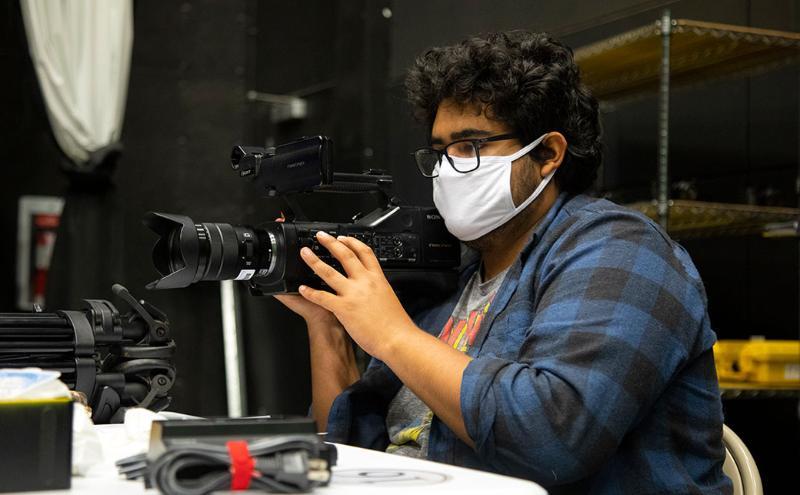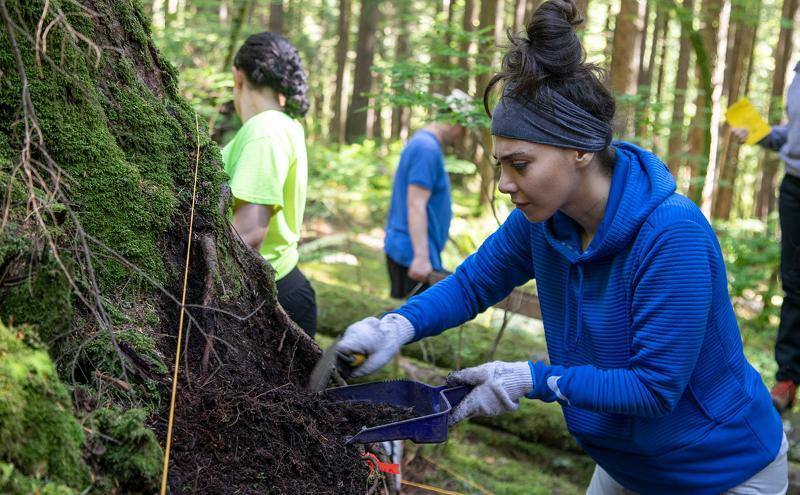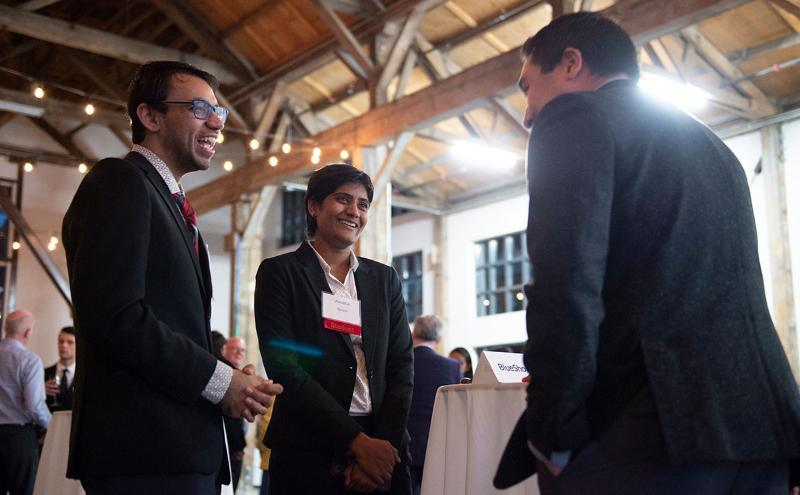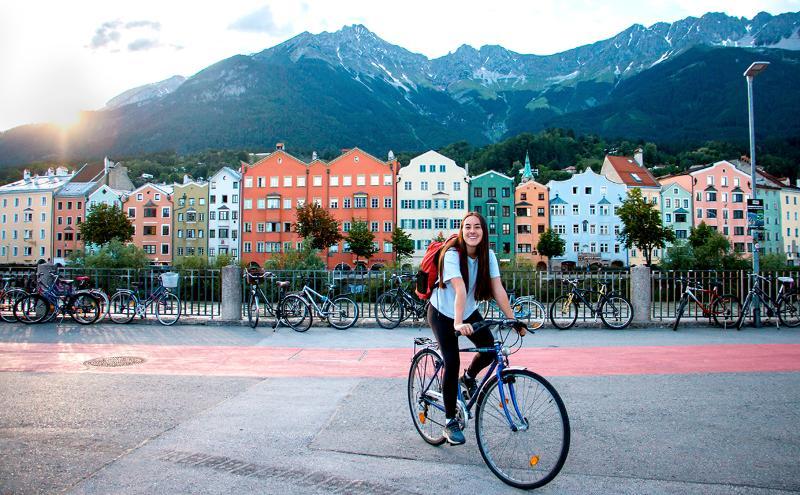Discover the ways you can boost your work experience during your time at CapU.

Practical learning opportunities
Practical learning, sometimes known as work-integrated learning (or WIL), lets you build the skills you developed in class by putting them into practice in a work environment. WIL includes three key components: faculty, students and community partners.
These opportunities are usually curricular, meaning they are part of your program. They can include:
As part of your program, or "curricular"
Often called a capstone or consulting project where students work with a community partner to solve organizational challenges with the guidance of instructor(s) for the duration of the course.
A clinic is practice-based work experience under supervision.
In CSL opportunities, you'll help community-based organizations solve local challenges.
Example:
In GEOG 330 — Water Changes Everything, students worked on promoting public awareness of the water systems in the City of North Vancouver and the importance of making sustainable choices when disposing of wastewater.
Co-op consists of alternating academic terms and work terms in a temporary full-time workplace related to your field of study.
Courses and programs with a co-op option include Outdoor Recreation Management and Tourism Management.
Internships are a structured work experience opportunity. They can happen in the middle of your program or just before graduation.
Examples:
BADM 340 and BADM 440 — Internship experiences are designed to provide a period (120 hours) of part-time, productive employment for students to work within industry, non-profit organizations or government agencies.
Explore career interests in kinesiology, rehabilitation, health sciences, coaching, health promotion, fitness and health in special populations, etc., while identifying and cultivating skills associated with the tasks presented in your placements.
Examples:
- Kinesiology: KINE 397 - BKIN Field Studies I
- Rehabilitation Assistant: RADP 190 - Practicum: Fieldwork I
In a practicum or clinical placement, you'll practice specific skills related to a profession (Paralegal, Music Therapy, Early Childhood Care and Education) in both paid and unpaid capacities.
At CapU, programs with practicums or clinical placement options include:
- Applied Behaviour Analysis (Autism)
- Arts & Entertainment Management
- Bachelor of Design in Visual Communication
- Early Childhood Care and Education
- Education Assistant Certificate
- Post-Baccalaureate Diploma in Global Hospitality & Tourism Management
- Health Care Assistant Certificate
- Legal Studies
- Motion Picture Arts
- Music Therapy
- Rehabilitation Assistant Diploma
- Diploma in Tourism Management International
- And more!
Opportunities around your program, known as co-curricular
Work experience where you support other students. This could be as a peer helper or student ambassador, etc.
Research assistantships are where you’re hired by a school to work on research projects with faculty or departments.
A post-credential internship happens after coursework and before graduation. Internships can be of any length, but are typically four, eight, or 12 months long.
Co-curricular CSL happens outside of class. It gives you the opportunity to help your community and a chance to reflect.
Volunteering builds skills while helping businesses that may not be able to afford full-time employees.
Work study is a way for you to strengthen your skills while earning money alongside your program. These positions are paid for with financial aid.
Courses and programs with an externship option include Music Therapy.
Short-term work experience such as job shadowing. This gives you chance to see how different companies operate and build their network.
For example, in MT 330 - Clinical Skills, Music Therapy students take field trips to clinical settings to observe music therapists working with the elderly.
Student jobs on campus including summer jobs, or work as library assistants, etc.
A great way to gain experience is by becoming a student representative on a Faculty and Senate sub-committee, or by being elected to the University Senate or Board of Governors.
The Capilano Students' Union (CSU) offers many opportunities to build leadership experience through student government positions. Elections for CSU positions are held every Fall term.
Explore other ways to maximize your experience at CapU

Field schools
Field schools are run by Capilano University instructors and last between 10 days and five weeks.
View Field Schools
Career Hub
Visit Career Hub to find opportunities including part-time and full-time work, co-ops, practicums and student jobs.
Visit the Hub
Explore exchange opportunities
CapU offers full-term exchanges for some of our programs. Explore the list and see where your learning could take you.
Study abroad